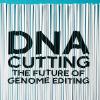A collaborative team of researchers has presented preliminary data showing that a CRISPR-based gene-editing therapy for inherited blood disorders is safe and effective.

The one-time gene editing treatment, known as CTX001, which was discovered and developed by Vertex Pharmaceuticals and CRISPR Therapeutics, has been given to 22 patients – 15 with transfusion-dependent beta-thalassaemia and seven with sickle cell disease – with the aim of boosting the production of fetal haemoglobin in order to correct the defective gene for haemoglobin associated with both diseases.
All the patients demonstrated sustained increases in fetal haemoglobin and total haemoglobin, with limited and manageable side effects related to the transplant procedure.
The patients with beta-thalassaemia have been transfusion-free since they received the infusion.
The seven patients with severe sickle cell disease have had no vaso-occlusive crises – the acute episodes of severe pain that also involve organ damage.
Stephan Grupp, study co-author and pioneer of the first cellular immunotherapy in childhood cancer, said: “What we’re seeing in these early days is how transformational this is for the sickle cell patients we’ve seen. We are hearing that it is life-changing.”
Image credit | iStock




